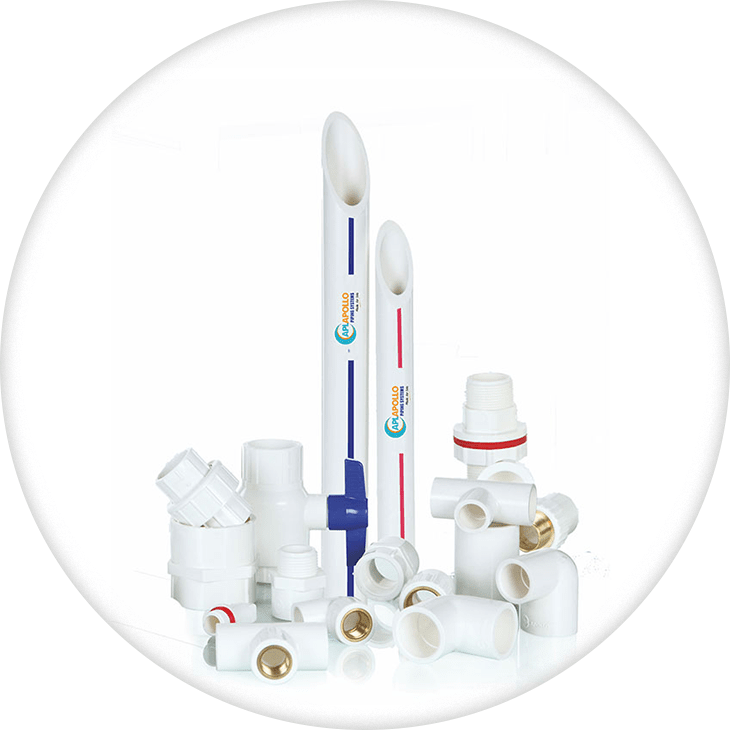Keeping in various kinds of health hazards, we need to ensure that our potable water should be safe and clean. For this, our plumbing system and compliance with the materials used are of great importance when it comes to drinking water plumbing systems. A popular choice for such applications is UPVC (unplasticized polyvinyl chloride) pipes. In this article, we will discuss the safety issues and regulatory compliance related to UPVC pipes used in drinking water systems. Understanding these aspects will help homeowners, plumbers, and other industry professionals make informed decisions when selecting and installing UPVC plumbing for their drinking water needs.
Understanding UPVC Pipes
UPVC piping system is widely used for various applications. UPVC is made from rigid PVC material that plasticizers have not softened, making it durable and resistant to chemical corrosion. UPVC pipes offer excellent strength, and high flow capacity, and are lightweight, making installation easier. UPVC pipes are known for their long lifespan, low maintenance requirements, and affordability, which make them a popular choice. These pipes have smooth inner surfaces which prevent contaminant build-up.
Health and Safety Certification
Health and safety certifications are the marks of quality, reliability, and safety of UPVC pipes. As we know that UPVC pipes are widely used in various applications, including water supply, irrigation, drainage, and plumbing systems. These certifications provide reassurance to consumers. We need to ensure that UPVC pipes meet the necessary standards and requirements for health and safety. Certifications indicate that the UPVC pipes have undergone rigorous testing and evaluation to meet specific quality standards. This ensures that the pipes are manufactured using high-quality materials and adhere to recognized manufacturing standards. Internationally recognized certifications and standards are such as NSF/ANSI 61, WRAS (Water Regulations Advisory Scheme), and KIWA.
Chemical Properties and Drinking Water Safety
UPVC pipes have excellent chemical properties making them safe for transporting drinking water. These pipes are chemically inert and do not react with water or release harmful substances into the water supply that may be highly harmful for our health. The composition of UPVC pipes does not include plasticizers or other additives that may trickle harmful chemicals. It ensures that the water remains free from contaminants and maintains its safety and purity.
Bacterial Growth and Biofilm
UPVC pipes have a smooth surface that minimizes the potential for bacterial biofilm formation. The smoothness of the pipes makes it difficult for bacteria to adhere and grow, reducing the risk of contamination in the potable water system and ensuring the delivery of clean and safe drinking water.
Impact Of Temperature and Pressure
UPVC pipes are manufactured in such a way that they can withstand the temperature and pressure variations commonly encountered in potable water systems. They have excellent thermal stability and mechanical strength, enabling them to handle high temperatures and pressures without compromising system integrity.
Compliance With Local Regulations
Complying with local regulations and building codes is of great importance when installing UPVC pipes for potable water systems. These regulations and codes are in place to ensure the safety, functionality, and reliability of the plumbing system. We need to ensure to consult local plumbing codes and regulations to ensure proper installation practices and compliance with specific requirements, thereby safeguarding the integrity of the potable water system.
Proper Installation and Maintenance
Proper installation and maintenance of UPVC pipes in potable water systems are essential for system safety and compliance. We need to use appropriate jointing techniques, provide proper pipe support, and ensure regular inspections to detect any issues or leaks. We should follow manufacturer guidelines and consult professionals to ensure the longevity and reliability of the system.
Long-Term Durability and Sustainability
UPVC pipes are long-lasting in potable water systems due to their resistance to degradation from environmental factors and chemicals. Apart from it, their recyclability allows for the reuse of materials, reducing waste and promoting sustainability. By choosing UPVC pipes, the environmental impact is minimized, making them an eco-friendly option for potable water systems.
Conclusion
Summarily it can be said that UPVC pipes are the best and most popular choice for various applications due to their durability, chemical resistance, smooth inner surface, and cost-effectiveness. If these UPVC pipes are marked with Health and safety certifications, such as NSF/ANSI 61, WRAS, and KIWA, it ensures that UPVC pipes meet quality standards. These pipes ensure the delivery of clean and safe drinking water. Compliance with local regulations and proper installation and maintenance are very important l for system safety. UPVC pipes are long-lasting, recyclable, and environmentally friendly which makes them a sustainable choice for drinking water systems.
Best UPVC Pipes Manufacturers
 When choosing UPVC pipes for your requirement, APL Apollo UPVC pipes are the best Choice. These pipes are manufactured and designed using the latest technology keeping in view the various needs of the customers and these UPVC pipes are lead-free, 100% free from corrosive chemical actions, and prevent any negative biological effects. This non-toxic nature of APL Apollo UPVC pipes ensures a healthy flow of potable water and follows ASTM standards as well.
When choosing UPVC pipes for your requirement, APL Apollo UPVC pipes are the best Choice. These pipes are manufactured and designed using the latest technology keeping in view the various needs of the customers and these UPVC pipes are lead-free, 100% free from corrosive chemical actions, and prevent any negative biological effects. This non-toxic nature of APL Apollo UPVC pipes ensures a healthy flow of potable water and follows ASTM standards as well.



